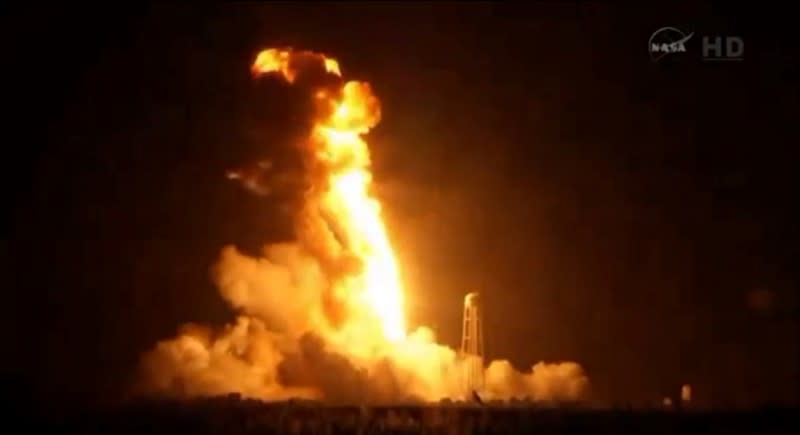Orbital, GenCorp spar over cause of October rocket crash

By Andrea Shalal
COLORADO SPRINGS, Colo. (Reuters) - Orbital ATK Inc (OA.N) and engine maker GenCorp Inc (GY.N) on Tuesday offered competing explanations for what caused the Oct. 28 explosion of Orbital's Antares rocket, bound for the International Space Station.
Ronald Grabe, Orbital's executive vice president and president of its flight systems group, told the annual Space Symposium conference that an investigation led by his company had concluded the explosion was caused by excessive wear in the bearings of the GenCorp engine.
GenCorp said its own probe showed that the wear in the bearings was likely caused by debris in the engine.
GenCorp spokesman Glenn Mahone said the company's independent investigation would be completed in about three weeks, but the bulk of the work had been done. He said Orbital's statement was "inaccurate and could be misleading."
He said GenCorp's investigation had also identified excessive wear of the bearings as the direct cause of the explosion that destroyed the rocket, but further research revealed that the bearings likely wore out due to "foreign object debris" in the engine.
Orbital said it expects to submit the final report of the company-led accident investigation to the Federal Aviation Administration in coming days.
Orbital’s fifth Antares rocket launch ended 15 seconds after liftoff from Wallops Island, Virginia, on Oct. 28, destroying an unmanned capsule loaded with more than 5,000 pounds (2,300 kg) of cargo for the International Space Station.
NASA is completing its own investigation of the incident, but has no plans to make that assessment public. NASA is not leading the investigation because Orbital was ferrying cargo under a commercial service contract.
The final determination of the cause of the explosion could have significant financial implications for the companies involved.
Grabe told Reuters the accident investigation board had concluded that the most probable cause of the blast was linked to "excessive bearing wear in the turboprop of the main engine number one."
He said the bearings in the engine had worn down to the point where they no longer preserved the separation between the rotating and stationary components in the engine.
GenCorp's Aerojet Rocketdyne refurbishes Soviet-era NK-33 engines and resells them as AJ-26 motors for the Antares rockets.
Orbital had announced plans to shift to a different motor before the accident.
Orbital in February had said there were more than half dozen credible causes of the explosion, including the possibility that debris from one of the fuel tanks could have gotten into the engine.
(Reporting by Andrea Shalal; Writing by Andrea Shalal and Emily Stephenson; Editing by Steve Orlofsky and Leslie Adler)

 Yahoo Finance
Yahoo Finance 